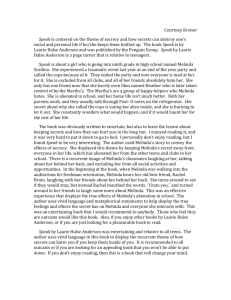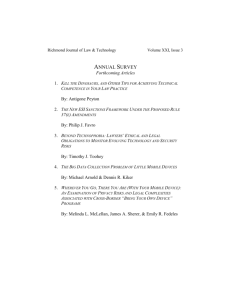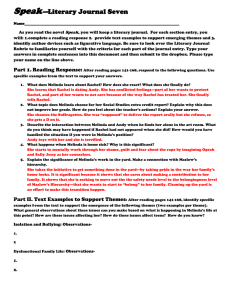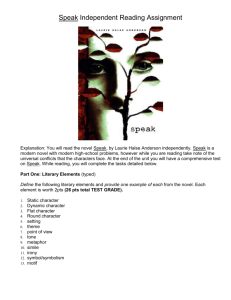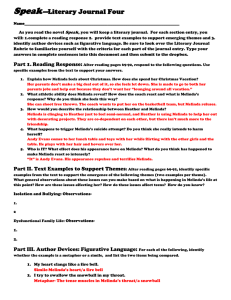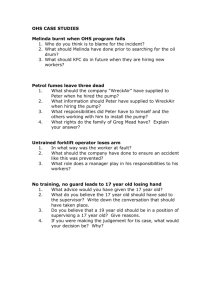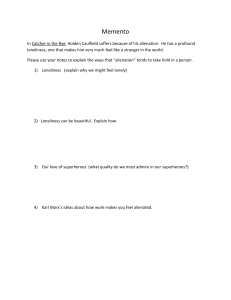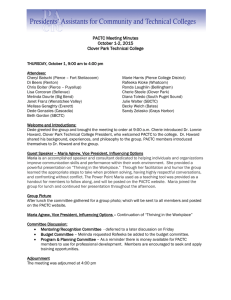Speak Journal: Instructions and Sample Entry
advertisement
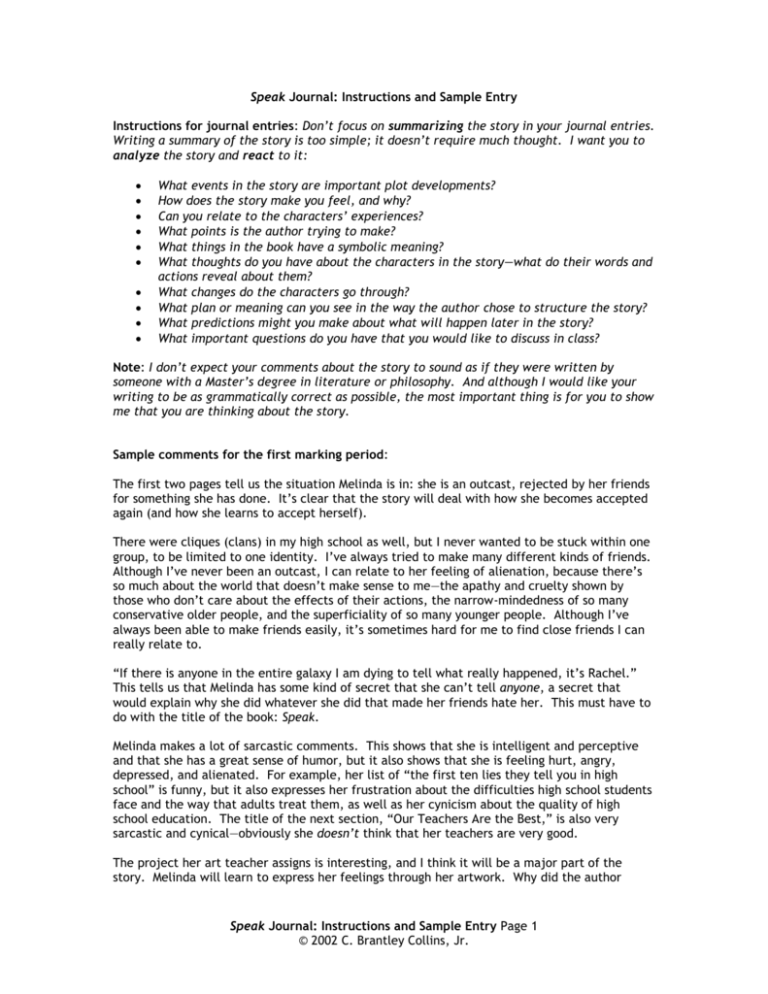
Speak Journal: Instructions and Sample Entry Instructions for journal entries: Don’t focus on summarizing the story in your journal entries. Writing a summary of the story is too simple; it doesn’t require much thought. I want you to analyze the story and react to it: What events in the story are important plot developments? How does the story make you feel, and why? Can you relate to the characters’ experiences? What points is the author trying to make? What things in the book have a symbolic meaning? What thoughts do you have about the characters in the story—what do their words and actions reveal about them? What changes do the characters go through? What plan or meaning can you see in the way the author chose to structure the story? What predictions might you make about what will happen later in the story? What important questions do you have that you would like to discuss in class? Note: I don’t expect your comments about the story to sound as if they were written by someone with a Master’s degree in literature or philosophy. And although I would like your writing to be as grammatically correct as possible, the most important thing is for you to show me that you are thinking about the story. Sample comments for the first marking period: The first two pages tell us the situation Melinda is in: she is an outcast, rejected by her friends for something she has done. It’s clear that the story will deal with how she becomes accepted again (and how she learns to accept herself). There were cliques (clans) in my high school as well, but I never wanted to be stuck within one group, to be limited to one identity. I’ve always tried to make many different kinds of friends. Although I’ve never been an outcast, I can relate to her feeling of alienation, because there’s so much about the world that doesn’t make sense to me—the apathy and cruelty shown by those who don’t care about the effects of their actions, the narrow-mindedness of so many conservative older people, and the superficiality of so many younger people. Although I’ve always been able to make friends easily, it’s sometimes hard for me to find close friends I can really relate to. “If there is anyone in the entire galaxy I am dying to tell what really happened, it’s Rachel.” This tells us that Melinda has some kind of secret that she can’t tell anyone, a secret that would explain why she did whatever she did that made her friends hate her. This must have to do with the title of the book: Speak. Melinda makes a lot of sarcastic comments. This shows that she is intelligent and perceptive and that she has a great sense of humor, but it also shows that she is feeling hurt, angry, depressed, and alienated. For example, her list of “the first ten lies they tell you in high school” is funny, but it also expresses her frustration about the difficulties high school students face and the way that adults treat them, as well as her cynicism about the quality of high school education. The title of the next section, “Our Teachers Are the Best,” is also very sarcastic and cynical—obviously she doesn’t think that her teachers are very good. The project her art teacher assigns is interesting, and I think it will be a major part of the story. Melinda will learn to express her feelings through her artwork. Why did the author Speak Journal: Instructions and Sample Entry Page 1 © 2002 C. Brantley Collins, Jr. decide to make her object a tree? Trees symbolize life and growth, so perhaps the painful experiences Melinda is having will lead to some kind of spiritual growth for her. The primary motif of the novel seems to be alienation. Melinda feels that everything around her is alien to her, and she doesn’t fit in. She is alienated from her friends and peers, who have rejected her, she is alienated from adults in her world, who don’t understand or want to understand the source of her strange behavior, and she is alienated from her parents, who don’t have a close relationship with her and don’t express concern for her. She is even alienated from herself, because she doesn’t have a clear sense of her own identity. The word “alien” itself even appears twice in the text of this first part. The feeling of alienation is something that many people in modern society, especially teenagers, can relate to. In the world of the past, people had a clear sense of identity and a feeling of belonging to certain groups. People identified with their own ethnic groups, their own nations, their own communities, and their own families, and they had clear role models whose footsteps they could follow in. These relationships, and the cultural environments people grew up in, determined their values and goals in life. But modern society is much more complex. We are now exposed to different values and belief systems, and relationships are much more diverse—families often aren’t so close, and we often form relationships with people of other ethnicities and nationalities. One of the results of this can be alienation, the feeling of not identifying with the world around us, of not belonging. But this situation is good in some ways as well. In the past, people’s identities were largely determined by others, but now we have more freedom to choose our own identities, to determine for ourselves who we are. Speak Journal: Instructions and Sample Entry Page 2 © 2002 C. Brantley Collins, Jr.
